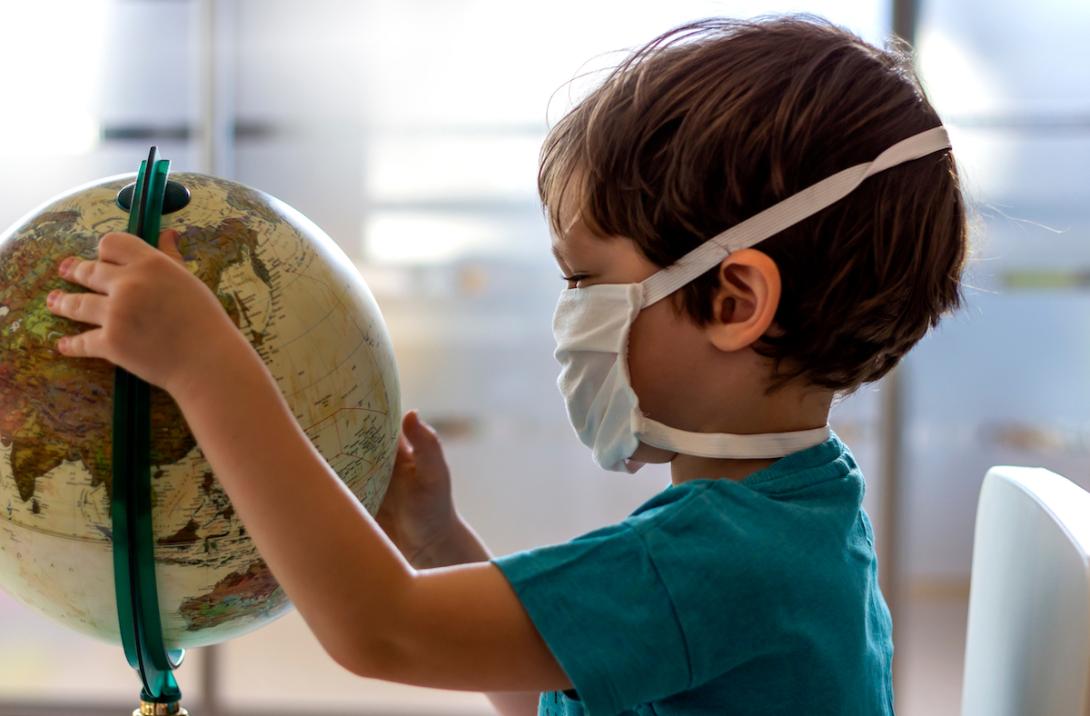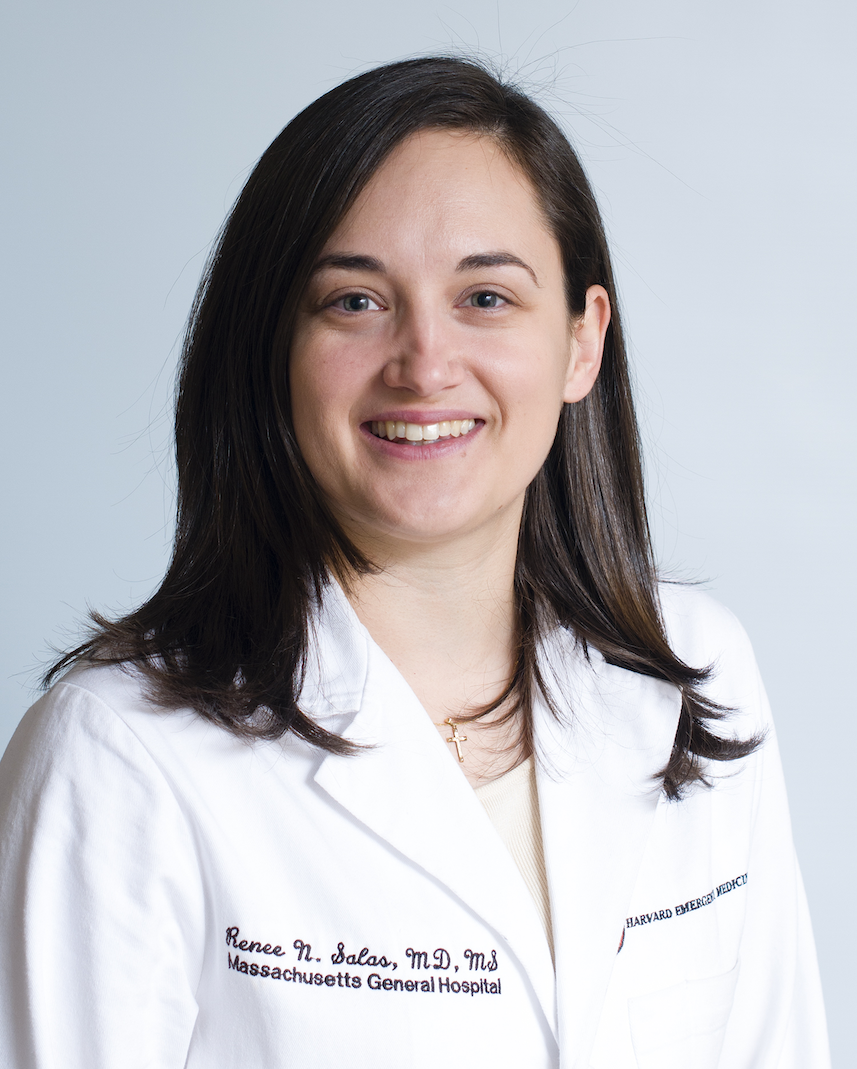
About a decade ago, Dr. Renee Salas had just started a fellowship through Massachusetts General Hospital when she read the Lancet Commission’s report on climate change. She had completed her residency and had begun practicing internationally as a first year attending physician.
Climate Action as a Prescription for Health, with Dr. Renee Salas
What: One hour talk and audience Q&A followed by a reception
When: 5 p.m. to 7:30 p.m., Wednesday, April 5
Where: University of Oregon, Eugene Campus
EMU Redwood Auditorium
1395 University of Oregon Eugene, OR 97403
Cost: free
How to attend:
Register for in-person
Watch virtually here
The climate report, she said, “knocked my rose colored glasses off.” She realized then, she told The Lund Report, that “climate change was something that threatens the mission of why I wanted to become a doctor. It was going to harm my patients and make it harder for me to provide care. And I saw it as the existential crisis of our time.”
She completely changed her career path to focus on the relationship between climate change and health care ever since. Today, Salas is a leading expert on climate change and its impacts on public health and the health care system.
On April 5, Salas will share what she’s learned during a lecture at the University of Oregon in Eugene. The event is free and open to the public in person and online. In-person attendees Guests must register in advance.
Her talk will focus on how a transition away from fossil fuels is a fundamental prescription for improving health and equity. In addition to working as an emergency room physician at Mass General, Salas has been the lead or senior author of the U.S. accompanying brief to the Lancet Countdown on Health and Climate Change every year since 2018. She also serves as co-director at the New England Journal of Medicine’s Climate Crisis and Clinical Practice Initiative, on the planning committee for the National Academy of Medicine’s Climate Change and Human Health Initiative and has testified on these issues before Congress, among other achievements in this area.
The Lund Report: You’re a lead author on the U.S. Brief to the Lancet Countdown’s annual reports on health and climate change, which last year stated: “Climate change and its primary driver — burning fossil fuels — have created an accelerating health crisis.” What are some ways we’re already seeing climate change’s impact on public health in the United States?

Dr. Renee Salas: The burning of fossil fuels creates harmful pollution and is driving climate change, which harms health in a broad number of ways.
For example, there was a young girl with asthma who presented to my emergency department for her third visit that week, and I had long conversations with her mother about the challenges of managing her disease. But she was living near a highway and breathing dangerous air pollution from the exhaust of cars. I was putting a Band-Aid on a bullet wound, where I was giving her medications to open her airways, only to send her back out to that dangerous environment. And there’s actually an abundance of evidence that shows that long term exposure to air pollution, especially again, that pollution from the burning of fossil fuels from vehicles, causes asthma in children — it’s been estimated to cause asthma in 1 in 5 children in the United States.
Fossil fuels are also driving climate change, which is creating new illness and worsening existing disease, like those with heart or lung disease. For example, there was a young construction worker who came to my emergency department with heat stroke, which is the life threatening form of heat illness, due to record breaking temperatures in Boston.
Heat is often the most recognized harm from climate change, but it also has these other broad and sometimes hard-to-recognize impacts on our health, like contributing to poor air quality from wildfire smoke or threats to our food supply by decreasing the nutrition. Climate change also threatens the safety of our water, such as flooding leading to contamination. And then there’s harms from intensified extreme weather like droughts and hurricanes, and expanded ranges of insect vectors, and social factors like displacement, so the list could go on.
But I think it’s also important to note that the burdens of climate change and fossil fuel pollution are not felt equally, and it’s been shown time and again, they’re felt hardest in communities that are already subjected to economic injustice and racism, and worsen existing health disparities. But it also means — and here’s the opportunity — that inequitable transition away from fossil fuel means healthier air, healthier people and a more stabilized climate.
TLR: One of the impacts of climate change that’s been brought up quite a bit is the impact on infectious disease. Should we be bracing ourselves for more ongoing pandemics?
Salas: Climate change is linked to infectious diseases in different ways. Ticks and mosquitoes, that transmit diseases like Lyme or West Nile, are able to live in new parts of the U.S. for a greater part of the year. And that’s contributed to an increase in the number of people with those infections. And research can also give us warnings. The Lancet Countdown indicator has shown us signs that diseases that are not currently common in the U.S., like dengue, are at risk of becoming more common as conditions grow more favorable for it to spread here. Diseases contracted through the water, like vibrio, which is associated with gastrointestinal symptoms and severe skin infections, are increasing in part due to factors like warmer water. And changes in lands use, combined with climate change, has been found to increase the risk of viruses jumping between animals and humans.
Our experience with the COVID-19 pandemic should make it clear that trying to find solutions after a pandemic already happens is devastating. We have to think about how to prevent pandemics from happening at all, and to act upstream, like tackling climate change because prevention truly is the best medicine.
TLR: I also wanted to talk about mental health. A state report here in Oregon that was released last June showed that Oregon youth, specifically, face despair, anxiety and hopelessness as they suffer the impacts of climate change. What have you learned about the broader mental health impacts of climate change?
Salas: Climate change harms mental health and well-being in a multitude of ways, whether it’s through natural disasters or heat or linked economic challenges. And associations have been shown to mental health conditions like depression or anxiety, PTSD and more.
And to your point, young people are particularly susceptible. In fact, there’s a survey of young people from the U.S. that found that three-quarters of American children surveyed were moderately to extremely worried about climate change. And a quarter of those felt that this impacted their ability to function. Now this study also looked at other countries. And in the Philippines, where the impacts of climate change are arguably even more visible, it was 94% with 74% — so three quarters of them — actually having impaired function.
But it’s interesting that a perceived failure of governments to respond was linked to a higher degree of distress. I think this supports that nothing combats climate anxiety like climate action.
TLR: You also note that climate change is harming the very systems that deliver our health care. How so?
Salas: I was practicing at my hospital, here in Boston, after Hurricane Maria struck Puerto Rico. And a significant portion of intravenous saline, which is literally water in a bag, was produced in factories that were disrupted in Puerto Rico. So there was a shortage.
And hurricane Maria has been shown to be more intensified because of climate change.
So we had strict criteria that I could only give intravenous saline to patients who were sick enough to receive it, which meant I was handing patients cans of Gatorade.
Now you can imagine responses when I was doing that, but it was an opportunity for education. But it is an example to show that, as a doctor, I need the tools in order to optimally treat my patients and provide them high quality care, and I need a building with power. As climate change intensifies extreme weather, it is going to damage infrastructure, make hospitals unusable, it’s going to create power outages, impact supply chains, and make it harder for both patients and workers and ambulance crews to actually be able to get to health care facilities.
The latest United Nation report makes it clear that we are very likely to hit 1.5 degrees Celsius above pre industrial levels within the next decade. We’re currently at 1.1. So this shows an enormous sense of urgency for us to act, because we have to make sure our communities are resilient to the impacts we’re suffering now at 1.1. — and be prepared for these rising and accelerating impacts over the coming decade. Because we have to make sure that you have a doctor in a hospital that can provide you high quality care when you need it most.
TLR: What can people working in the health field do to mitigate or remedy some of these impacts?
Salas: Recognizing that climate action is a prescription to improve health and equity.
My patient with asthma, who couldn’t control her disease, the prescription she needed was an equitable transition away from fossil fuels. That was the root cause of so many different drivers of why she potentially had asthma and why she couldn’t control it.
It’s enormously important, in our privileged position within health care, we have to foremost advocate for what our patients and communities need. And that is an equitable and just transition away from fossil fuels at the local, state and national levels.
Secondly, we have to hold our institutions accountable for not contributing to this vicious cycle of creating disease in our patients and communities that just brings them back through our door, and makes it harder for us to then provide them care.
Thirdly, we have to implement health protections, especially for those that are most at risk in our clinical practice and our institutions and our communities, and work together in an unprecedented way.
And finally, and continuing that theme of unprecedented collaboration, we have to come together with other health professionals — and across society and other sectors, like those in the energy sector, or the transportation sector — to make clear that our motivation for acting on climate change is to improve health. And that all of the interventions we do to tackle climate change, maximize those health benefits, especially for those who need it most.